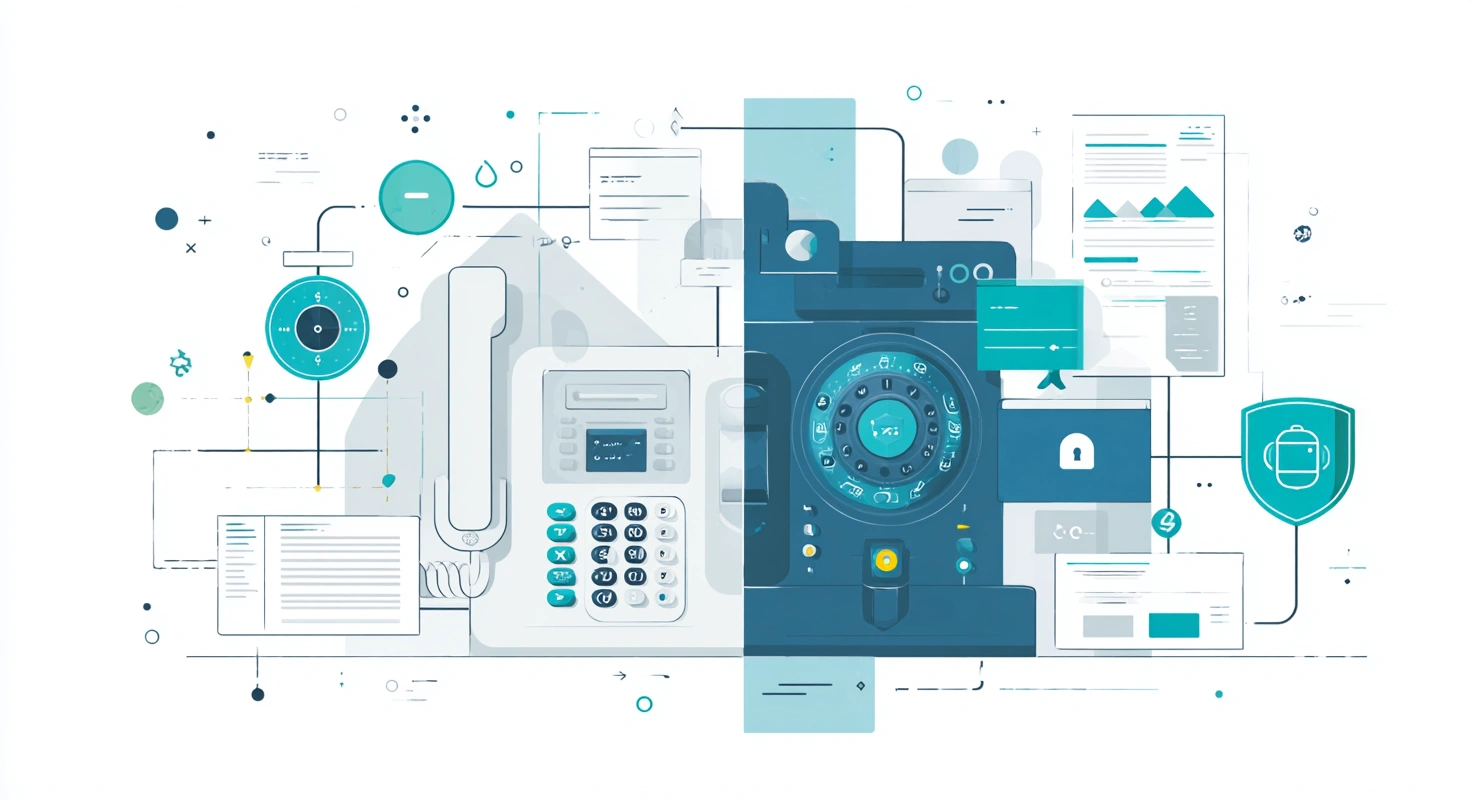Customers have increasing expectations from businesses when it comes to resolving issues. And how well you handle the customer interactions across your contact center is key to business success.
According to Microsoft’s Global State of Multichannel Customer Service Report, 97% of consumers say that customer service is crucial to retaining their loyalty.
Thus, readdressing the call center quality assurance process can be instrumental in helping in improving your overall customer experience.
Quick & effective customer experience is the ultimate aim of all businesses, but upholding speed & call center quality assurance at the same time makes the most significant difference.
But how do you ensure you maximize your agent productivity & increase your customer satisfaction without compromising on the quality of service provided?
If you're also searching for the answer to this question, you've landed at the right destination!
This is precisely where call center quality assurance comes into the picture. Let's take a closer look at it to understand what it is & how it can be your contact center's most significant growth driver.
This blog will cover:
- What is Call Center Quality Assurance?
- Functions of Quality Assurance in a Call Center
- Correlating QA Scores With Customer Feedback
- Performing Root Cause Analysis
- Monitoring Remote Workers
- Enabling Regulatory Compliance
- Driving Internal Process Improvements
- Offering Distinct Insights
- Call Center QA Best Practices
- Streamline The Monitoring Process
- Create An Encouraging Culture
- Promote Agent Engagement
- Ensure Problem Resolution
- Design Scorecards
- Use The Right Tools
What is Call Center Quality Assurance?
Call center quality assurance is observing an agent’s call and analyzing the quality of 100% of calls concerning agents' performance affecting customers’ requirements and expectations.
Call center quality monitoring is considered the most effective and efficient approach to improving the customer service provided by call centers.

With adequate call center quality assurance, it gets easier for quality assurance managers to easily spot and discover problems within their teams. This can be done by proactively monitoring the interactions between the agents and customers with the help of the right call center software.
Quality assurance call monitoring is, thus, an essential factor in running a thriving call center. While maintaining higher customer experience standards in a call center, quality assurance also helps keep costs low by improving the agents’ efficiency.
A single instance of poor customer service can be enough to chase customers away. Thus, it is imperative to identify common customer issues, enhance customer experience, and help standardize communication processes with customers.
Functions of Quality Assurance in a Call Center
Are you utilizing quality assurance in your call center to its fullest?
Call center managers often use quality assurance for a couple of important benefits which isn't wrong. But, there is so much more to call center quality assurance than providing quality training & increasing customer experience.
For example, evaluating agent performance & providing adequate coaching opportunities are among the most common call center quality assurance functions. Unless you're leveraging call center quality assurance to its fullest potential, you are missing out on exciting ways to grow your revenue, increase productivity & improve your bottom line.
So, the question is, how do you do that? How do you maximize the use of call center quality assurance to make the most of it?
Let's explore how QA functions & some of its significant benefits that your call center may have overlooked in the past:
1. Correlating QA Scores With Customer Feedback
A study by Microsoft reveals that 90% of the customers believe that companies should offer customers the ability to provide feedback.
Even after collecting customer feedback, many contact centers struggle to align between the two - what they think is good customer service & what their customers think is good customer service.

To understand this difference in your perception & your customers, the best way to go about it is to match your quality assurance scores and feedback via customer surveys.
By comparing the internal & external sentiment, you can evaluate the issue & measure productivity & customer experience for ongoing improvement.

2. Performing Root Cause Analysis
One of the most valuable functions of call center quality assurance is the ability to identify gaps in performance & complete a root cause analysis accordingly.
This can be done with high-level QA scores & detailed reports that provide in-depth insights into every interaction. The more detailed the analysis is, the more likely you are to spot issues & opportunities to capitalize on.
In the end, you can get to the bottom of a problem & determine how it can be resolved to move towards further improvement.
3. Monitoring Remote Workers
We live in times where the entire world has been transformed into a global village. In such a digital-first age, remote call centers are becoming more common than ever.
While businesses have a central call center, it is likely to have remote working agents who rely on the cloud. Call Center QA is thus valuable to determine if your remote agents are all set with the collaboration tools, productivity tracking apps, and domains they need to be successful.
Remote QA is one of the most comfortable ways to monitor your remote agents and adjust your process as needed.
4. Enabling Regulatory Compliance
Call center compliance is a topic where all contact centers must learn to mitigate risk. It is such a serious business that a tiny mistake can result in hefty fines.
For example, in the US, call centers must comply with call monitoring consent, using/recording customer payment information, fair debt collection, Do Not Call registry, HIPAA, and much more.

QA can help implement stringent compliance measures to avoid huge fines, thus reducing costs & increasing profitability.
5. Driving Internal Process Improvements
Research reveals that 77% of the CEOs state their main focus is to build operational excellence & drive revenue growth.
To drive improvements using QA, it is essential to develop an organizational chart that can help you determine accountability, tools available to categorize inquiries, delivery of your customer service & the level of your agents' productivity.
The key is to use QA to understand your call center workflow better to drive growth & improve efficiency finally.
6. Offering Distinct Insights
One of the most underutilized functions of QA is using insights from call center QA in other parts of the business.
While QA can provide several benefits related to customer satisfaction & increased revenue, it can also help reveal valuable insights for your business, including what it takes to create brand evangelists who promote your brand.
If implemented correctly, QA can also help reveal why your customers are willing to stay with your brand & your customer's worth in revenue and profitability.
Call Center QA Best Practices
Now that you are well aware of most of the functions of call center quality assurance, let's examine some of the best practices to build an excellent QA program:
1. Streamline The Monitoring Process
Create a comprehensive and systematic approach that enables managers to gather enough information to improve call quality and standardize the entire QA process. This leads to easy monitoring, tracking, and justifying of the QA process for effectiveness.
2. Create An Encouraging Culture
Although the primary goal of call center quality assurance aims to deliver feedback and identify new learning opportunities, it is a hugely beneficial practice to recognize & reward agents for their performance & participation.
This creates an engaging culture & boosts agents' effectiveness, which in turn leads to happy customers.
3. Promote Agent Engagement
Agents must thoroughly know the metrics and targets for evaluation.
Whether adherence to scripts, average handling time, or first call resolution, they must understand what a quality interaction means to their company.
To promote their engagement, they should be presented with live demos to comprehend a good, average, and poor call. The managers should constantly request the agents' feedback to foster a culture of collaboration.
4. Ensure Problem Resolution
Customers are mainly calling for an immediate resolution to their concerns.
While the agents must be careful to do better at QA metrics, like reducing the Average Handle Time, they should take complete ownership of the call & try to resolve issues as effectively as possible without compromising on quality.
5. Design Scorecards
Based on important KPI metrics like CSAT, and AHT, it is essential to create detailed scorecards as a data-driven method to evaluate progress over a longer duration.
Every process is unique & thus requires different performance metrics. Call center agents handling inbound interactions must be evaluated differently than those managing outbound interactions. Hence, adding detailed columns will segregate these calls and focus on better quality monitoring for effective results.
6. Use The Right Tools
It is wise to keep observing continuous improvement by utilizing tools that facilitate the QA process of call monitoring.
Having real-time information to identify recurring issues and address them promptly is much better than a state of chaos & no improvement.
Summing Up
Call center quality assurance helps managers identify the areas for improvement, record valuable observations, and provide actionable recommendations that will help enhance the quality of customer interaction for your business.
Successful call centers work to personalize QA guidelines to stay on the mark to meet business goals. The best call center QA guidelines incorporate specific actions and general agent behavior to maximize returns.
The goal for every call center is to move from a day-by-day transactional operation to one that supports the company’s long-term strategic objectives. Continuous improvement and working on the call center QA framework mentioned above will result in ongoing success for call centers and the businesses like yours.
We aim to help you stay on top of change by helping you transform your customer experience management. All you need to do is explore automated call monitoring & our experts will be on stand by for any help!
This blog is just the start.
Unlock the power of Convin’s AI with a live demo.










.avif)